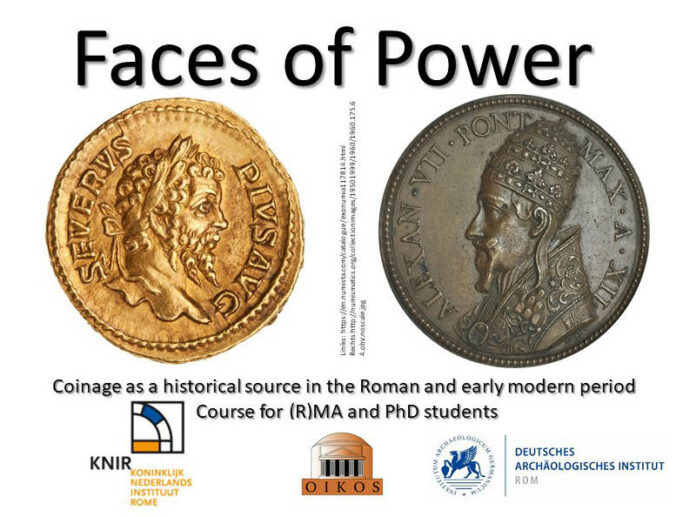
Look at a coin in your hand, and you may see the face of a person. On modern euro coins, this person is often a living queen or king, or a historical figure that represents a specific EU country. They stand in a long tradition: in the Roman Empire and in early modern Rome, emperors and popes figured widely on coins and medals. The coins represented their power, and the images of these authorities affirmed the value of the objects. During most of the Roman Republic, however, living persons were hardly displayed on coins. How can we explain the presence and absence of images of authorities on coins in different historical contexts? And how can we interpret the presence of other living persons on coins’ obverses and reverses? After all, (anonymous) representatives of different societal groups, such as armies, citizens and provincials, often figure on Roman and early modern coins and medals as well. Does this practice hint at specific audiences the objects were meant for?
This course focuses on the use of coins as a historical source for broader questions regarding representation and power in the Roman and early modern period. Students will be challenged to decipher and interpret the information conveyed by these exceptional primary sources, on which text and images are combined. In addition to theoretical and methodological skils, the students will also learn how to create a digital exhibition of a selected number of numismatic objects that fits the theme of the course.
Lecturers
- Paul Beliën (Dutch Central Bank)
- Liesbeth Claes (Leiden)
- Martin Hirsch (Munich)
- dr. Fleur Kemmers (Frankfurt am Main)
- Erika Manders (Nijmegen)
- Marleen Termeer (Nijmegen)
The course, organized by the Royal Netherlands Institute of Rome and the German Archeological Institute, will take place from 3rd to 12th March 2022 for MA and PhD Students. Applications need to be submitted before 15th January 2022.
For further information and to apply to the course, visit the KNIR website.



